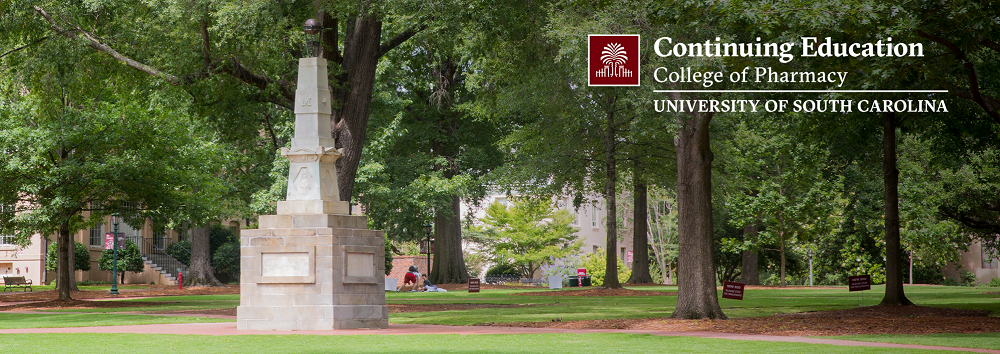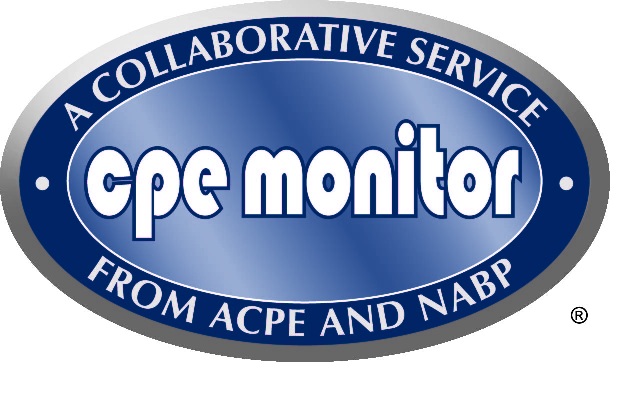
 |
Betsy Blake, PharmD, BCPS; Director of Interprofessional Education and Clinical Associate Professor, University of South Carolina College of Pharmacy; Co-Chair, Interprofessional Education for the Health Sciences, University of South Carolina
|
Overcoming Migraines: Novel Medications to Treat and Prevent Migraines
(8:30 am-10:00 am)
|
 |
Michaela Almgren, PharmD, MS; Clinical Assistant Professor,
University of South Carolina College of Pharmacy
|
New Approaches to Pain Management: Multimodal Opioid-Free Analgesia
(10:15 am-11:15 am)
|
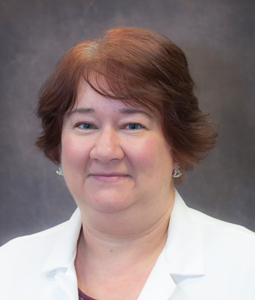 |
Karen McGee, PharmD, CDE, BCGP; Clinical Associate Professor, University of South Carolina College of Pharmacy; Clinical Pharmacist, Palmetto SeniorCare PACE
|
Dementia and Behavioral Disturbances in the Geriatric Population
(11:15 am-12:15 am)
|
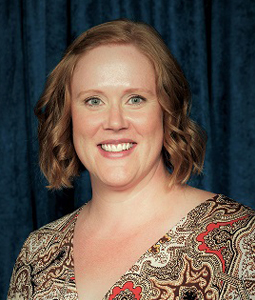 |
Patricia H. Fabel, PharmD, BCPS; Executive Director, Kennedy Pharmacy Innovation Center; Clinical Associate Professor, University of South Carolina College of Pharmacy
|
The Value of Integrating Pharmacists into Primary Care
(1:30 pm-2:30 pm)
|
 |
Brandon Bookstaver, PharmD, FCCP, FIDSA, BCPS; Associate Professor and Director of Residency & Fellowship Training, University of South Carolina College of Pharmacy; Infectious Diseases PGY2 and Clinical Fellowship Director, USC/Prisma Health Richland
|
Top 10 Infectious Diseases Topics of 2019
(2:35 pm-4:05 pm)
|
 |
Jordan Cooler, PharmD, BCPP; Clinical Assistant Professor, University of South Carolina College of Pharmacy; Psychiatric Pharmacist, University of South Carolina Student Health Center
|
Drugs of Abuse: A Focused Update on Abuse and Monitoring
(8:30 am-9:30 am)
|
 |
Julie Sease, PharmD, FCCP; Senior Associate Dean and Professor,
University of South Carolina College of Pharmacy
|
Hypertension: Classification, Management, and Monitoring of the Most Common Disease State
(9:45 am-10:45 am)
|
 |
Cynthia Phillips, PharmD, CDE; Clinical Associate Professor, University of South Carolina College of Pharmacy; Clinical Pharmacist, Prisma Health Richland
|
Determining Decisions and Deciphering Dilemmas in Dyslipidemia with Updated
American College of Cardiology/American Heart Association Cholesterol Guidelines (10:50 am-11:50 am)
|
 |
Brie Dunn, PharmD; Associate Dean for Outcomes Assessment &
Accreditation and Clinical Associate Professor, University of South Carolina College of Pharmacy
|
Beyond Diabetes: Benefits of SGLT2 Inhibitors and GLP-1 Agonists
(12:45 pm-1:45 pm)
|
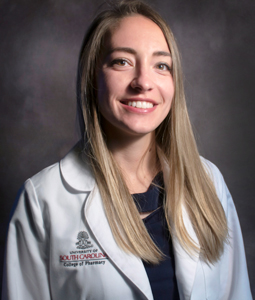 |
Hana Rac Winders, PharmD, BCIDP; Lead Antimicrobial Stewardship Pharmacist, Antimicrobial Stewardship Collaborative of South Carolina (ASC- SC); Clinical Assistant Professor, University of South Carolina College of Pharmacy
|
Community Acquired Pneumonia Update
(2:00 pm-3:00 pm)
|
 |
Jill Michels, PharmD, DABAT; Clinical Associate Professor, University of South Carolina College of Pharmacy; Managing Director, Palmetto Poison Center
|
Management of Pit Viper and Black Widow Envenomation
(3:05 pm-4:05 pm)
|
 |
Kathryn N. Anderson, PharmD; PGY1 Community Pharmacy Resident, Medicine Mart Pharmacy
|
Immunized People 2020: An Immunization Update |
- Registration will remain open until January 24, 2020 at 8:00 am
- Register online at https://cop.sc.learningexpressce.com - scroll down and select "Register Now" within the program!
- Early registration prior to January 6, 2020:
- Pharmacists (single day): $130
- Pharmacists (both days, 2/1 and 2/22): $230
- Pharmacy technicians (single day): $85
- Pharmacy technicians (both days, 2/1 and 2/22): $140
- Registration after January 6, 2020 will increase by $20:
- Pharmacists (single day): $150
- Pharmacists (both days, 2/1 and 2/22): $250
- Pharmacy technicians (single day): $105
- Pharmacy technicians (both days, 2/1 and 2/22): $160
- Fees include continental breakfast and lunch
- Please note that fees will appear as “Learning Express” on your credit card statement
- PEEP Preceptors: Prior to registering, please check your email for information from the PEEP Office on discounted registration!
- The February 1 program has been accredited for 6.0 live contact hours (0.6 CEUs) for pharmacists and pharmacy technicians. Five hours qualify as “drug therapy or patient management”, with one of those hours designed to combat the opioid epidemic through pain management and “approved procedures for monitoring controlled substances”.
- The February 22 program has been accredited for 6.0 live contact hours (0.6 CEUs) for pharmacists and pharmacy technicians. Six hours qualify as “drug therapy or patient management”, with one of those hours designed to combat the opioid epidemic through pain management and “approved procedures for monitoring controlled substances”.
- Included in the registration is a 1 hour (0.1 CEU) home study for pharmacists and pharmacy technicians. This hour serves as an immunization update for immunizing pharmacists and also qualifies as “drug therapy or patient management”.
Date: Feb 1, 2020 08:30 AM - Feb 22, 2020 04:05 PM
Fee
CE Hours
CE Units
Registration closes on Jan 27, 2020 07:00 AM
Activity Type
- Knowledge-Based and Application-Based
Target Audience(s)
- Pharmacists
Accreditation(s)

|
The University of South Carolina College of Pharmacy is accredited by the Accreditation Council for Pharmacy Education as a provider of continuing pharmacy education.
|
Requirements for CE Credit
Registration closes on Jan 27, 2020
at 07:00 AM
Registration Closed
- Describe migraine headaches and the criteria for diagnosis
- Discuss lifestyle modifications to decrease migraine episodes
- Review the evidence for new and existing therapies to treat and prevent migraines
- Demonstrate the appropriate administration of injectable migraine therapies
Speaker(s)/Author(s)
|
Betsy Blake, PharmD, BCPS, FNAP
|
Activity Number
0062-0000-20-002-L01-PCE Hours
Registration Closed
- Review the impact of the opioid epidemic in the U.S. and SC
- Discuss the pathophysiology of pain
- Describe different types of pain and current treatment protocols
- Define preemptive, preventive and multimodal analgesia
- Explain the use of multimodal analgesia as an alternative to opioids
Speaker(s)/Author(s)
|
Michaela Almgren, PharmD, MS
|
Activity Number
0062-0000-20-003-L01-PCE Hours
Registration Closed
- Classify common types of dementia
- Review medications of choice for memory loss and agitation associated with dementia
- Evaluate patient cases and develop care plans that emphasize patient safety
Speaker(s)/Author(s)
|
Karen McGee, PharmD, CDCES, BCGP
|
Activity Number
0062-0000-20-004-L01-PCE Hours
Registration Closed
- Recognize the benefit of incorporating a pharmacist into primary care settings for the management of high blood pressure, high cholesterol and diabetes
- Describe the economic feasibility of integrating a pharmacist into primary care settings
Speaker(s)/Author(s)
|
Patricia Fabel, PharmD, BCPS
|
Activity Number
0062-0000-20-005-L04-PCE Hours
Registration Closed
- Apply updated infectious diseases treatment guidelines and policies to antimicrobial recommendations
- Analyze clinical implications of peer-reviewed infectious diseases literature
- Determine the role of newly approved antimicrobials
- Acknowledge emerging pathogens both nationally and globally
- Discuss changes in roles and responsibilities of pharmacists in managing infectious diseases
Speaker(s)/Author(s)
|
P. Brandon Bookstaver, PharmD, FCCP, BCIDP
|
Activity Number
0062-0000-20-006-L01-PCE Hours
Registration closes on Jan 27, 2020
at 07:00 AM
Registration Closed
- Identify risk factors for inappropriate use of controlled substances and other prescription and non-prescription drugs of abuse
- Explain best practices for identifying and mitigating drug abuse and misuse based on available data
- Apply recommendations in a specific pharmacy practice setting
Speaker(s)/Author(s)
|
Jordan Cooler Haygood, PharmD, BCPP
|
Activity Number
0062-0000-20-007-L01-PCE Hours
Registration Closed
- Use patient case information to categorize a patient as having normal blood pressure, elevated blood pressure, stage 1 hypertension, or stage 2 hypertension and assign an appropriate evidence based blood pressure goal for the patient
- Recommend an appropriate initial evidence based treatment plan (including nonpharmacologic and pharmacologic therapies) for a patient based on their presenting blood pressure value and patient specific factors (including compelling indications, laboratory evaluation, and ASCVD risk)
- Justify an appropriate evidence based treatment plan for a patient who is not meeting blood pressure goal on their current regimen
- Educate a patient who will be conducting home blood pressure monitoring about the guideline-recommended way to complete this
Speaker(s)/Author(s)
|
Julie Sease, PharmD, FCCP, BCPS, CDCES, BCACP
|
Activity Number
0062-0000-20-008-L01-PCE Hours
Registration Closed
- Investigate patient risk of atherosclerotic cardiovascular disease (ASCVD) using risk calculators and risk enhancing factors
- Analyze updates in the American College of Cardiology (ACC) /American Heart Association (AHA) Cholesterol Guidelines
- Discuss the appropriate use of non-statin therapies in ASCVD prevention
- Apply updated ACC/AHA Cholesterol Guidelines to patient cases
Speaker(s)/Author(s)
|
Cynthia Phillips, PharmD, CDCES
|
Activity Number
0062-0000-20-009-L01-PCE Hours
Registration Closed
- Describe the advantages and disadvantages of SGLT2 inhibitors and GLP-1 agonists
- Identify potential benefits of SGLT2 inhibitors and GLP-1 agonists based on recent clinical trial data
- Compare and contrast cardiovascular and renal benefits for available SGLT2 inhibitors and GLP-1 agonists
- Develop and justify an evidence-based plan for a specific patient in order to provide cardiovascular and/or renal benefit. given a case scenario
Speaker(s)/Author(s)
|
Brie Dunn, PharmD
|
Activity Number
0062-0000-20-010-L01-PCE Hours
Registration Closed
- Identify the differences between the 2007 and 2019 community-acquired pneumonia (CAP) guidelines
- Discuss the evidence behind recommendations in the new CAP guidelines
- Apply the new CAP guidelines to patient cases
- Recognize the pharmacist's role in antimicrobial stewardship relating to the treatment of CAP
Speaker(s)/Author(s)
|
Hana Rac Winders, PharmD, BCIDP
|
Activity Number
0062-0000-20-011-L01-PCE Hours
Registration Closed
- Discuss treatment myths associated with pit viper envenomation.
- Recommend supportive treatment for pit viper envenomation.
- Compare Crotalidae Polyvalent Immune Fab (Ovine) antivenom to Crotalidae Immune F(ab’)2 (Equine) antivenom
- List treatment options for black widow spider bite
Speaker(s)/Author(s)
|
Jill Michels, PharmD, DABAT
|
Activity Number
0062-0000-20-012-L01-PCE Hours
Registration Closed
- Identify strategies to improve immunization rates
- Review recently published immunizations efficacy studies
- Determine a patient’s immunization needs based on disease states, exposures, and immunization history through a patient case
Speaker(s)/Author(s)
|
Kathryn N. Anderson, PharmD
|
Activity Number
0062-0000-20-013-H06-P
